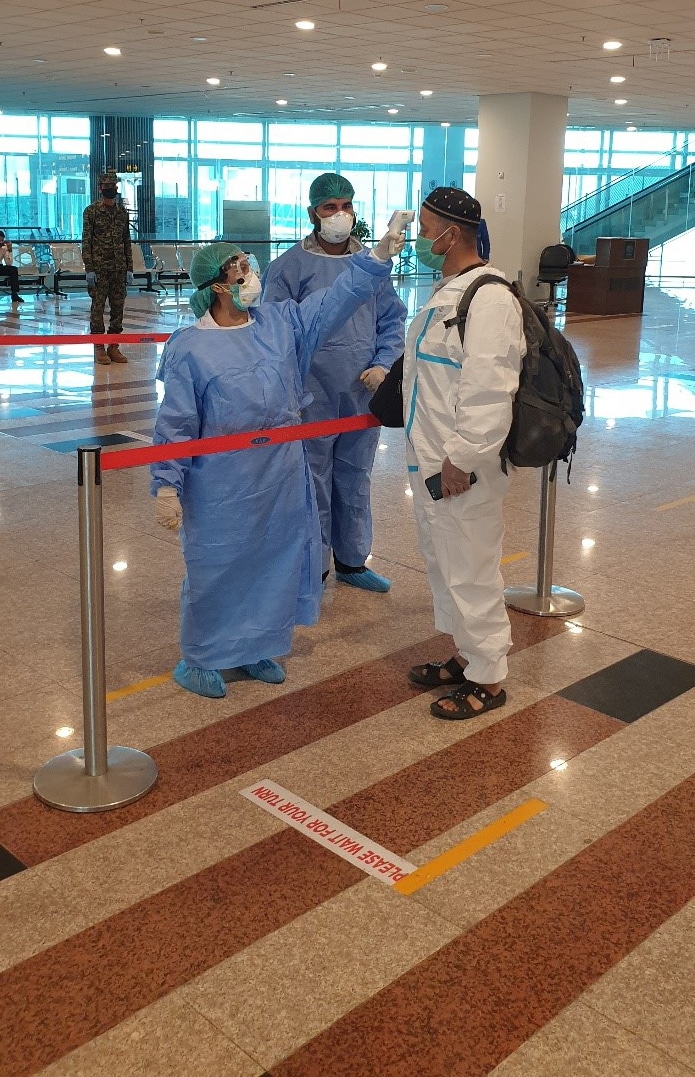FELTP: The Frontline of Defense Against COVID-19 in Pakistan

FELTP graduate Dr. Nadia Noreen screens a traveler for COVID-19 symptoms at Islamabad Airport in Pakistan.
Located near China and Iran, early epicenters of the COVID-19 pandemic, Pakistan believed it was at increased risk of a widespread COVID-19 epidemic. As a result, the government of Pakistan took early steps to screen incoming travelers for COVID-19 symptoms at airports and other ports of entry. These steps likely contributed to controlling the spread of the deadly virus.
After the World Health Organization (WHO) declared the COVID-19 outbreak a Public Health Emergency of International Concern (PHEIC), Pakistan implemented a National Preparedness and Response Plan for COVID-19 in line with the Global Health Security Agenda (GHSA) and International Health Regulations (IHR). The plan included comprehensive standard operating procedures (SOPs) to screen travelers to limit importation of the virus. Dr. Faiza Bashir, Dr. Nadia Noreen, and Dr. Najma Javed, Pakistan graduates of the Field Epidemiology Laboratory Training Program (FELTP), implemented the SOPs for screening at Islamabad International Airport. The FELTP alumni used their training in epidemiology and disease surveillance to design and implement a real-time data entry system to screen air travelers from high-risk countries. This screening system, which was considered a “gold standard” for the rest of the country, included:
- completing health declaration forms;
- using thermal screening to check passengers for fever;
- providing COVID-19 health education materials and;
- isolating suspected cases and transporting them to designated hospitals.
Operating a new screening system was very demanding, especially with so much uncertainty about the virus and an ever-growing outbreak that was overwhelming the health system. Despite challenges, including frustrated passengers, overcrowded corridors, and frustrated flight operators, the FELTP alumni and responders have thus far successfully screened 1,526 international flights, involving more than 325,000 passengers. As of June 21, 2020, 75 passengers suspected of having COVID-19 were shifted to designated isolation units. FELTP Pakistan residents and graduates continue to use the knowledge and skills learned from their training to ensure an effective response to the rapidly spreading COVID-19 virus.
